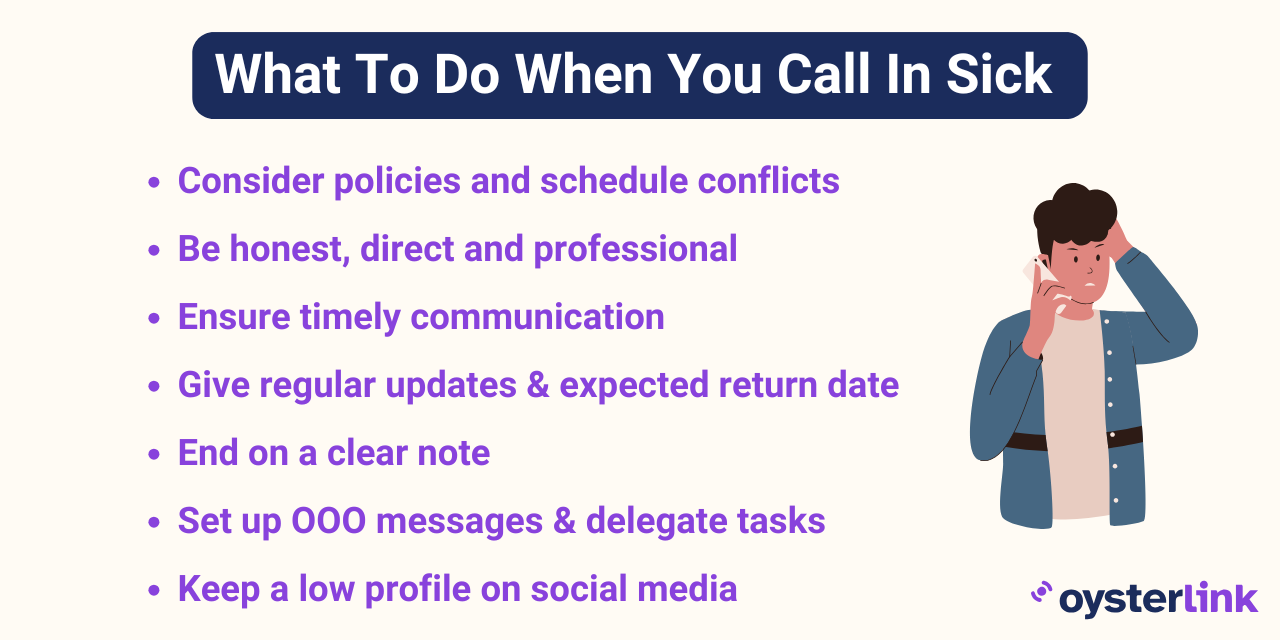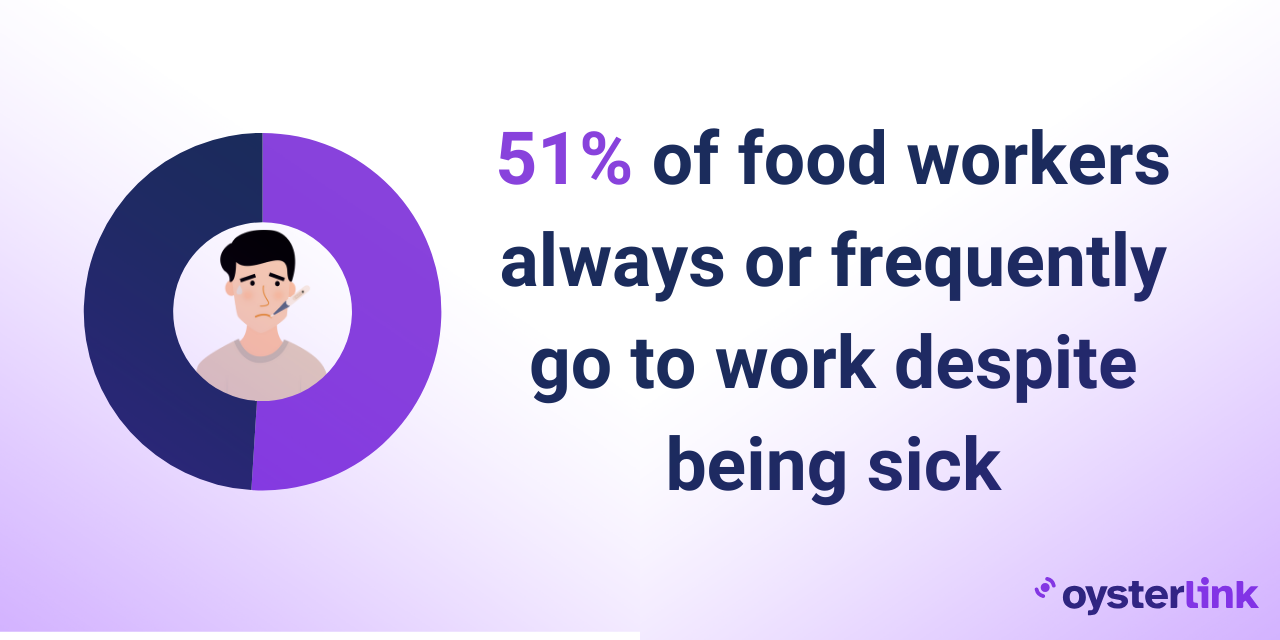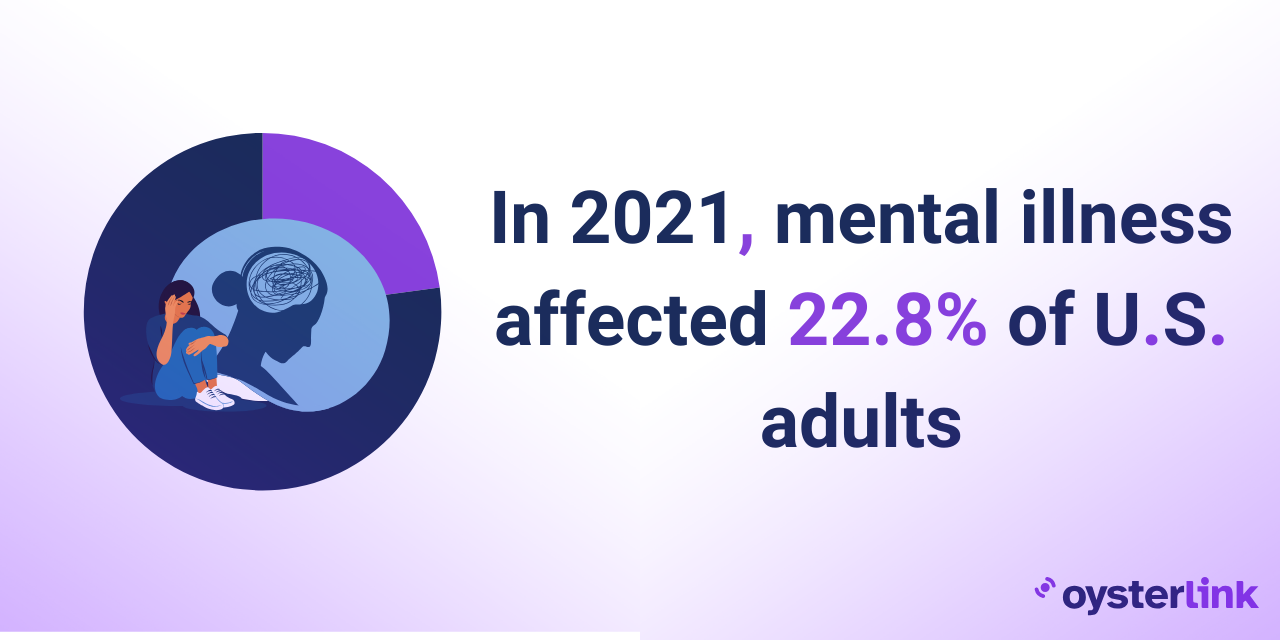The hospitality industry is known for its never-ending hustle and bustle, so taking a sick leave can feel like a luxury. Yet, health — both physical and mental — is paramount.
Given the hands-on nature of the job, taking time off when needed is not just advisable; it’s a responsibility, and knowing how to call in sick becomes a must.
In this guide, we will cover the best tips for how to call in sick, along with valid reasons for taking time off. We will also provide examples you can use when messaging a request for sick leave.
7 Tips for How To Call In Sick
When notifying your employer that you’ll be taking the day off, the goal is to communicate effectively and responsibly.

Now, let's go through each of the key tips for how to call in sick to work and how to effectively practice these.
1. Consider Policies and Schedule Conflicts
To showcase your professionalism when asking for a day (or days) off, you need to be prepared for any issues that might arise. Here’s what you can do:
- Review your company policy: Familiarize yourself with your company's sick leave policy and procedures. Know who to contact and what information you’ll need to provide, such as the reason for absence and how and when they could reach you.
- Check your schedule and responsibilities: Review your work schedule to see if your absence will impact the hotel's or restaurant's operations. Identify what shifts and responsibilities need to be covered in your absence.
- Provide alternatives: If possible, suggest solutions to minimize the impact of your absence. This could include asking your colleagues to cover for you or helping with rearranging the work schedule.
- Plan communication: Decide how you will communicate your absence to your manager or relevant parties. Determine whether you need to call, email or use any specific communication channels set by your company.
2. Keep It Honest, Direct and Professional
When calling in sick as a hospitality industry worker, it's important to communicate honestly, effectively and professionally. Here is how to best approach the situation:
- Be straightforward from the get-go: Start by clearly stating that you're calling in sick. For example, "Hi [Manager's Name], I regret to inform you that I won't be able to come in to work today because I'm not feeling well."
- Briefly explain your situation: Provide a brief explanation of why you're unable to work. You don't need to go into detail, but mentioning symptoms like a fever, nausea or vomiting can help your manager understand the severity of your illness.
- Convey apologies and gratitude: Express regret for any inconvenience caused by your absence and declare gratitude for your manager's understanding. A simple "I'm sorry for the inconvenience” and “Thank you for your understanding" can go a long way.
3. Ensure Timely Communication
It’s best to call in sick as soon as you realize you won't be able to work. This allows your employer time to make necessary adjustments to schedules or tasks.
Avoid waiting until the last minute as it can create unnecessary stress for your colleagues, and they might struggle to cover your duties or rearrange their own schedules at short notice.
4. Offer Regular Updates and Confirm Expected Return Date
To demonstrate professionalism, it's important to maintain open communication with your manager or supervisor when calling in sick.
During your conversation, let them know you’ll be providing regular updates on your condition and express your commitment to keeping them informed.
Additionally, try to confirm (if possible) your expected return-to-work date to help your employer manage any necessary adjustments to schedules.
5. End on a Clear Note
To avoid any confusion, ensure that your point of contact understands your request by summarizing its key points.
Before ending the call or message, ask them if there’s anything they need from you. That way, their response will also serve as an acknowledgment of your request.
6. Set Up an Out-of-Office Message and Delegate Tasks
If you are expecting to call in sick for more than a day, you might want to have an out-of-office (OOO) autoreply email set up. This will further ensure clear communication and accountability on your end. Here’s a simple template:
Subject: Out of Office – [Your Name]
Hi there,
I’m currently out sick and will not be available until [expected return date]. For urgent matters, please contact [Name of Colleague/s] at [email and/or phone number]. I’ll respond to any pending messages as soon as I’m back.Best,
[Your Name]
Taking these steps ensures your sick day doesn’t disrupt operations and helps you return to work with minimal stress.
Also, to keep work running smoothly in your absence, you might also need to delegate important tasks to a trusted colleague. Let them know what needs immediate attention, provide any necessary instructions and give them access to files, documents or systems (if you have to).
7. Keep a Low Profile on Social Media
You need to be extra cautious about what you post on social media when you're calling in sick. Even if you genuinely need the day off, sharing photos of yourself out with friends or engaging in non-work activities might raise doubts about your honesty.
After all, some employers monitor employees' social media, and a careless post could lead to unnecessary scrutiny or even disciplinary action.
To protect your professional image, avoid posting updates that could contradict your sick leave. If possible, keep your accounts private and be mindful of who can see your activity. Being discreet ensures you maintain trust and avoid any potential misunderstandings with your employer.
When To Call In Sick if You’re a Hospitality Industry Worker
Understanding when to call in sick depends on the severity of your condition and its potential impact on your ability to fulfill your job duties safely and effectively.
Here are some of the most common valid reasons to take a sick leave:
Physical illness
Tech Times reports that 51% of food workers “always” or “frequently” go to work despite being sick, which poses risks to both colleagues and customers.

It's crucial to stay home if you're experiencing a contagious illness such as:
- Influenza (flu)
- Common cold
- Chickenpox
- Measles
- Norovirus (stomach flu)
- Pertussis (whooping cough)
- Impetigo (highly infectious skin condition)
Additionally, symptoms such as fever, severe pain or discomfort, vomiting, diarrhea or respiratory issues could interfere with your ability to work safely and effectively.
Physical injuries
It's crucial to stay home if you're experiencing any physical injury or condition that could compromise your safety or ability to perform at your job. This includes injuries such as:
- Broken bones
- Sprains or strains
- Severe cuts or wounds
- Concussions or head injuries
- Back injuries
- Burns or scalds
- Fractures
Additionally, symptoms such as severe pain, dizziness, loss of consciousness, difficulty moving or significant swelling may indicate a need for immediate medical attention.
Mental health concerns
In 2021, mental illness affected 22.8% of U.S. adults, totaling 57.8 million people.

The Family and Medical Leave Act (FMLA) categorizes a serious health condition as an ailment, injury, impairment or physical/mental condition requiring inpatient care or ongoing treatment by a healthcare provider.
Conditions such as anxiety, depression, panic attacks or severe stress can impact your ability to function at work. If you're experiencing any of these, it's best to prioritize self-care and seek appropriate support, which may include taking time off from work.
Family emergencies
It’s important to know that labor laws in most states cover family emergencies for sick leave, acknowledging the need to provide care for a sick child or dependent can arise unexpectedly.
Family emergencies can include a wide range of situations that require your immediate attention. These could be instances such as a sudden illness or injury of a family member, where your presence and assistance are essential for providing care during a challenging time.
Additionally, the need to provide care for a sick child or dependent can arise unexpectedly, requiring you to take time off from work to attend to their needs and ensure their well-being.
Doctor appointments or treatment
If you have a scheduled medical appointment or need to undergo treatment that cannot be scheduled outside of work hours, it may be necessary to take time off from work.
How To Call In Sick via Text
Effectively communicating your absence can make the process smoother for both you and your employer. The key is to be clear, concise and sincere.
Pro tip: Avoid oversharing personal details — your employer doesn’t need to know every symptom, medical condition and other similar factors. Also, oversharing can make your message seem unprofessional or even raise unnecessary concerns.
Here are the best examples to help you craft your message, tailored to various situations:
For physical illnesses
Example 1:
“Hi [Manager’s Name], I regret to inform you that I’ve come down with a stomach bug. Therefore, I will be staying home to recover and avoid spreading it to the team and our customers. I should be able to resume work by [Date].”
Example 2:
“Hi [Manager’s Name], I woke up with a high fever and flu-like symptoms. For the safety of everyone, I think it’s best if I don’t come in today. Thank you for understanding and I apologize for any inconvenience this might cause.”
For physical injuries
Example 1:
“Hi [Manager’s Name], I regret to inform you that I've injured my back, and it's best I stay home to rest and recover to prevent worsening the injury further. I apologize for any inconvenience this may cause and I appreciate your understanding.”
Example 2:
"Hi [Manager’s Name], I sprained my ankle last night and am in significant pain. To ensure I can fully recover, I will be taking a sick leave today. I apologize for any disruption this might cause, and I will update you ASAP if I can resume work tomorrow."
For mental health days
Example 1:
“Hi [Manager’s Name], I’m going through a tough time mentally and need a day off to get professional support.Thank you for your understanding. I'll be back tomorrow, ready to tackle my tasks with a better headspace.”
Example 2:
“Hi [Manager’s Name], I've been experiencing sudden panic attacks last night and for my well-being, I need to take a mental health day. I believe it will help me be more effective and focused when I return [number of days] from now. Thank you for your understanding and support during this time.”
For family emergencies
Example 1:
“Hi [Manager’s Name], there’s been a family emergency, and I need the whole day to address it. I assure you I’ll be back as soon as things are settled. Thank you for understanding.”
Example 2:
“Hi [Manager’s Name], I need to take the day off to accompany my child to the hospital. I understand the timing isn’t ideal, but I appreciate your understanding.”
For medical appointments or treatments
Example 1:
“Hi [Manager’s Name], I have a medical appointment for a necessary procedure that requires my immediate attention. I need to take time off to undergo treatment and recover. Thank you for understanding and I apologize for any inconvenience this might cause.”
Example 2:
“Hi [Manager’s Name], I need to see a specialist, and the only available slot is during my shift. Could I take some time off tomorrow? I understand the inconvenience and will try to swap shifts or make up for it.”
Following Up After a Sick Day
After calling in sick, it’s important to check in with your employer before returning to work. Some companies may require documentation, such as a doctor’s note, especially if you were out for multiple days. Be sure to review your company’s policy and provide any necessary paperwork promptly to avoid complications.
If your illness impacted your ability to work effectively, a brief health update can reassure your employer that you're ready to return. Keep it professional and concise; something like, “I’m feeling much better and ready to get back to work.”
Preparing for Your Return to Work
Returning after a sick day can feel overwhelming, especially if you missed key updates or tasks. Fortunately, you can take a proactive approach to make the transition smoother. Below are the steps you should take.
- Start by catching up on missed work: Review emails, messages, and schedules to get up to speed on any changes or important updates. Prioritize urgent tasks first to avoid falling behind. If necessary, check in with your manager or teammates for a quick recap of what you missed.
- Thank your colleagues: If coworkers covered shifts or handled your responsibilities, express your appreciation. A simple “Thanks for helping out while I was out” goes a long way.
- Communicate with your manager: If you still have lingering symptoms but are well enough to work, let your employer know if any accommodations are needed. For example, if you need adjustments like a lighter workload or a modified schedule while recovering, it's best to discuss this with your employer as soon as possible.
How To Call In Sick To Work: Key Takeaways
From Sous Chefs tirelessly working behind the line to Receptionists juggling multiple tasks at the front desk, the intensity in the hospitality industry is undeniable. But amidst this whirlwind, your health should remain a priority.
There’s an old saying in the industry, “You can’t serve from an empty vessel.” If you’re not feeling your best, you can’t give your best.
Calling in sick when necessary isn’t just about taking care of yourself — it’s about ensuring a safe and productive workplace for everyone. Therefore, taking time off when needed is not a sign of weakness, but a clear example of one’s professionalism, self-awareness and commitment to quality service.
Communicating professionally, following workplace policies and handling your absence responsibly helps minimize disruptions while allowing you to recover. Lastly, encourage open dialogues about health in your workplace, advocate for mental well-being and always listen to your body.
Looking for more career advice tailored to the hospitality industry? OysterLink offers expert insights on everything from salary insights and workplace policies to job search strategies.
Explore our platform, where your journey to career success begins with the right information readily available.








Loading comments...